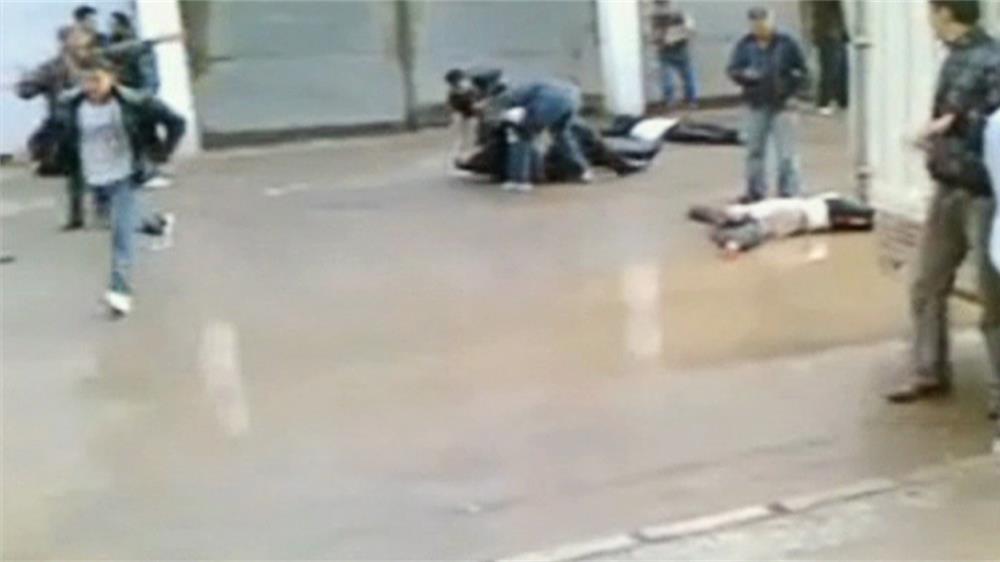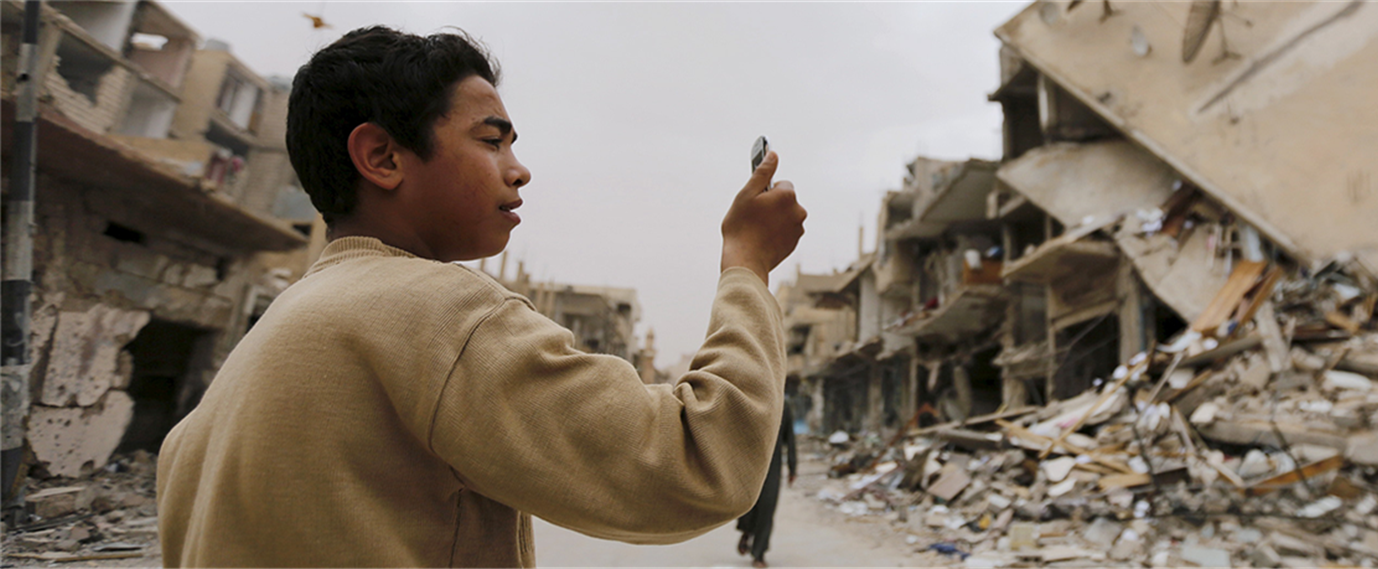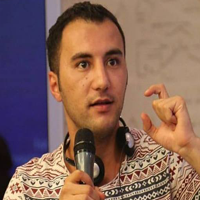عندما بدأت الاحتجاجات في سوريا عام 2011، كنتُ طالباً في كلّية الإعلام بجامعة دمشق، وكنتُ قد بدأت لتوّي العمل في مجال الصحافة. وكحال أي صحفي، كان هدفي البحث عن الأخبار الدقيقة والموثوقة والوصول إليها في زحمة الضخ الإعلامي المزدوج، الذي يحمل روايتين، فكلُّ حادثةٍ كانت تشهدها بدايات الأزمة في سوريا، كانت وسائل الإعلام تقدّم لها روايتين مختلفتين تماماً، وهو ما صعّب المهمّة أمام المواطنين والناشطين حتّى يعرفوا ما يجري تماماً، كان هناك رواية ثالثة لم تروها أي من وسائل الإعلام سواء في هذا المحور أو ذاك.

في تلك الأثناء، ومع تصاعد وتيرة الأحداث في سوريا وتسارعها، بدأت مجموعة من المواطنين الصحفيين، بفكرة كسر احتكار وسائل الإعلام للمعلومات، وأسسوا مجموعة على موقع التواصل الاجتماعي "فيسبوك" حملت اسم "تحرير سوري" بهدف نشر الأخبار الموثوقة والدقيقة حول ما يجري فعلاً على الأرض.
ولعلَّ من أبرز الأمور التي ساعدت على نجاح هذه المجموعات هي قوانينها الصارمة وسياسة عملها، فهي تضم عشرات الآلاف من المواطنين والناشطين والصحفيين الموزّعين على عموم الأراضي السورية والذين باتوا قادرين على نشر الأخبار التي يلاحظونها بالعين المجرّدة في مناطقهم أو تلك التي توثَّقوا من حدوثها، حيث تقوم سياسة النشر في هذه المجموعة ومُعظم المجموعات، إمّا بوضع كلمة "مؤكَّد" في بداية الخبر، على أن يُرفق ما يثبت تأكيد هذا الخبر من وثيقة أو تسجيل مصوّر أو صورة ثابتة أو غيرها، أو يضع كلمة "للتحقّق" إن كان ينوبه الشك في صدقية الخبر، فيضطلع بقيّة الأعضاء بمهام البحث والتحقّق ومقاطعة المعلومات حتّى يثبتون هذا الخبر أو ينفونه.
اطَّلعت "مجلّة الصحافة" على أبرز هذه المجموعات وحاورت مؤسّسيها لمعرفة معلومات أكثر عنها والهدف من تأسيسها وكف كسرت احتكار وسائل الإعلام للتدفّق الإخباري.
neoIRT
يُشير اسم هذه المجموعة إلى "Instant reporting team"، وهي مجموعة أسّسها عدد من الناشطين في مطلع شهر يوليو/تموز من عام 2016، وأسّسوا معها مدوّنة خاصة بها، يبلغ عدد أعضائها 42 ألفاً معظمهم من الناشطين والصحفيين المحترفين ومواطنين عاديين جمعهم شغف البحث عن معلومات دقيقة.
يقول أيمن عبد الله، وهو صحفي سوري يعيش في ألمانيا وعضو في الفريق الذي يدير المجموعة: "أردنا أن نقدم وجها جديد للإعلام هدفه تقديم صورة حقيقية للواقع في سوريا وليس نشر بروباغندا إعلامية تخدم طرفاً على حساب باقي الأطراف، وإعطاء فرصة للشباب المهمش الموجود في المناطق الخارجة عن سيطرة النظام السوري، في ظل تحول الغالبية العظمى من المراسلين في هذه المناطق، إلى أصوات للفصائل المسلحة أو للجهات التي تموّلهم ماديا".
وأضاف لـ "مجلّة الصحافة"، أنه و"منذ اندلاع الاحتجاجات في سوريا، بدأ النشطاء استخدام فيسبوك ولاحقا تويتر وتيلغرام لنشر الأخبار اليومية للأحداث في السورية، وتحوّلت هذه المجموعات إلى مصدر معلومات لقنوات إخبارية عربية وغير عربية، وعبرها أوصل مئات الناشطين أصواتهم إلى الإعلام العالمي".
واعتبر أن وجود مثل هذا النمط الإعلامي كَسَر احتكار وسائل الإعلام للأخبار.. "كثيراً ما نتلقَّى كفريق للناشرين رسائل من مراسلين لصحف أو قنوات معروفة بهدف التحقق من بعض الأخبار التي تُبثُّ عبر تلك القنوات، ونفينا أخبارا بثتها تلك القنوات أو المواقع".
وأبرز ما يميّز هذه المجموعات، هو "مرونة العمل وسرعة النشر بسبب بساطة تركيبتها وعدم خضوعها للخطوط الحمراء التي غالبا ما يفرضها الداعم أو الممول على وسائل الإعلام"، حسب عبد الله.
وفضلاً عن نشر الأخبار وتدقيقها والتحقّق منها، تُترجم هذه المنصّة عشرات المواد والأفلام والوثائقيات من اللغات الألمانية والإنجليزية والسويدية التي تدور بمعظمها عن الواقع السوري، إذ أنَّ هذه المواد تقدم للمواطن السوري صورة عن كيفية تعاطي الإعلام الغربي مع مشاكله.
ويوضّح عبد الله أن المنصّة تمنع توجيه أي إهانة للأديان والضحايا المدنيين في الحرب السورية والمثليين جنسياً أو أي مجموعة عرقية، وهو ما يجذب شريحة واسعة من المتابعين ممن نفروا من المنصّات الإعلامية التي تسود فيها الفوضى، مبيّناً أن أبرز إيجابيات هذه المجموعات هو سرعة نشر الخبر والتحقق منه، حيث يسهم العدد الكبير من التعليقات في استخلاص صورة الوضع على الأرض بسرعة كبيرة، بدلا من انتظار وسائل الإعلام التقليدية التي تستغرق وقتا طويلا عادة.
مراسل سوري
أسس مجموعة من الشباب والصحفيين السوريين هذه المجموعة في شهر أغسطس/آب من عام 2014، بهدف نقل الخبر كما حدث بعيداً عن أية تبعية أو سياسة لعدم وجود داعم مادي يستطيع التحكم بما يتم نقله عبر الشبكة، وبلغ عدد أعضائها ما يزيد عن 33 ألفاً.
يقول مؤسّس المجموعة ورد اليافي، وهو شاب سوري ينحدر من مدينة قطنا قرب دمشق ويعيش في تركيا "إن الوكالات الإعلامية العالمية والتي كانت تنقل الخبر السوري بحسب سياستها الخاصة ما أدّى لتشويه الحقيقة، فكان من أهم أهدف "مراسل سوري" هو خلق جو لنقل الأخبار بعيدا عن سياسة الدول المختلفة.
واعتبر أن الوضع السوري معقّد جد، وخصوصاً بعد تدخل عدد كبير من الدول وإنشاء مصالح خاصة لهم وبات لدى كل الأطراف السورية ماكينة إعلامية خاصة بها، فتحول الخبر السوري لمزيج من الأخبار المتناقضة في كثير من الأحيان والتي تعبر عن وجهة نظر كل جهة، مُبيّناً أن "الإعلام ليس حكراً على الحروب أو الأزمات وبالتالي وجود هكذا مجموعات في دول مستقرة هو ضرورة، حيث ينقل المواطنون ما يحدث وليس الإعلام الرسمي أو الخاص".
وأضاف "مراسل سوري استطاع بناء جسر للثقة مع السوريين وبات الخبر بالنسبة لنا هو حاجة ويجب أن تصل لأكبر عدد من السوريين. وسائل الإعلام الكبيرة لديها إمكانيات كبيرة ولكن تخضع لسياسة معينة عليها الالتزام بها.. نحن لم نخضع لأي من هذه السياسات، موضحاً أن منصّته "مراسل سوري" اعتمدت على نقل الخبر الخاص غير المُتاح أمام وسائل الإعلام ما أدّى إلى قيام وسائل إعلام كبرى بنقل الخبر عنه.
تمكّنت "مراسل سوري" من الانفراد بتغطية ملف الميليشيات الأجنبية المقاتلة في سوريا وتعقّبها منذ دخولها إلى البلاد، كما كشفت عدّة اتفاقات سرّية كانت تتم باسم السوريين ومنها اتفاق تهجير الزبداني أول مرة، وثم اتفاق ما عرف بالمدن الأربعة "الزبداني ومضايا وكفريا والفوعة"، واتفاق تهجير برزة والقابون ومنها اتفاق نقل أمراء ومقاتلي النصرة من درعا إلى إدلب، كما غطّت الشبكة مناطق تواجد تنظيم "الدولة الإسلامية" وانتهاكات التحالف الدولي.
SNA (Syrian News Activity)
تأسّست هذه المجموعة قبل نحو عشرة أشهر من قبل مجموعة من الناشطين السوريين المُوزّعين داخل وخارج سوريا، وعدد أعضائها نحو 46 ألفاً.
يقول الصحفي السوري أحمد رمضان، أحد مؤسّسي هذه المجموعة "أردنا نقل الخبر من قبل متطوّعين غير خاضعين لأي جهة تمويل داخلية أو خارجية، موضحاً أن هذه المجموعات كسرت قاعدة تلاعب المموّل في الأخبار، وهي إحدى أبرز مزاياها".
ويوضّح أنّ نسبةً كبيرةً من وسائل الإعلام التي تحتوي على كوادر متكاملة، تستقي الأخبار من هذه المجموعات، مبيّناً أن المواطن العادي الذي يعيش على الأرض ليس لديه أي مصلحة لتزوير الأخبار كونه ضمن دائرة المعاناة من الأخبار الملفّقة.
بانوراما أخبار سوريا
في تموز من عام 2013، تأسّست أوّل مجموعة "الصحفي المواطن" وحملت اسم "تحرير سوري"، ولكنّها أُغلقت لاحقاً بعد اكتسابها شعبية كبيرة، بسبب عدم القدرة على الاستمرار بتحرير الأخبار بشكلٍ تطوّعي طيلة أربع سنوات وحاجتهم للبحث عن مصدر لتأمين حياتهم، ولكن مؤخّراً أسَّس فريق من المجموعة التي كانت تدير "تحرير سوري"، مجموعة "بانوراما أخبار سوريا" انطلاقاً من ضرورة الاستمرار بنقل الأخبار بالإمكانات المُتاحة.
يقول رامي زهرة، وهو عضو في إدارة هذه المجموعة ومدون سوري وعضو الاتحاد الوطني للصحفيين في المملكة المتحدة: "نحاول تغطية الأخبار على الساحة السورية والإقليمية من خلال أعين شهود العيان قبل كاميراتهم وأقلامهم.. نحن مجموعة شباب متطوعين، ننقل ونترجم ونحرر ونتأكد من الأخبار وندعمها بصور ومقاطع فيديو من مصادر موثوقة وشهود عيان ولا ننتمي لحزب أو فصيل".
وأوضح أن "مواقع التواصل الاجتماعي باتت جزءاً من حياة الإنسان، هنالك من سخّر هذا الأمر للفائدة رغم وجود من استخدمه للضرر، وفي المجموعة، المعرفة مُتاحة للجميع سواء في دول الحروب أو الدول الهادئة".
واعتبر أن هذه المجموعات دليل تطور، وكسرت سياج الحديد الذي بنته المؤسسات الإعلامية الضخمة لاحتكار المعلومة، وتحدّث عن متعة التشارك المُتاح أمام الجميع للتأكّد من الأخبار وتحريرها وتدقيقها. علاوة على ذلك، عندما يكون العمل تشاركيا، فهناك اعتدال في الطرح والنجاح وكسر لاحتكار المعلومة، وتابع: "نحاول أن نكون مصدراً موثوقاً في نقل الخبر، بعيداً عن الروتين الصحفي في دوامه الإلزامي الطويل أو بتوجه وأجندة معينة وبموضوعية، وهذا من أبرز إيجابيات هذه المجموعات"








































